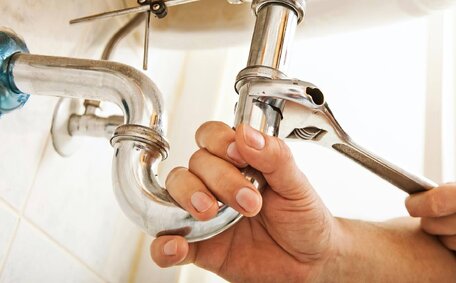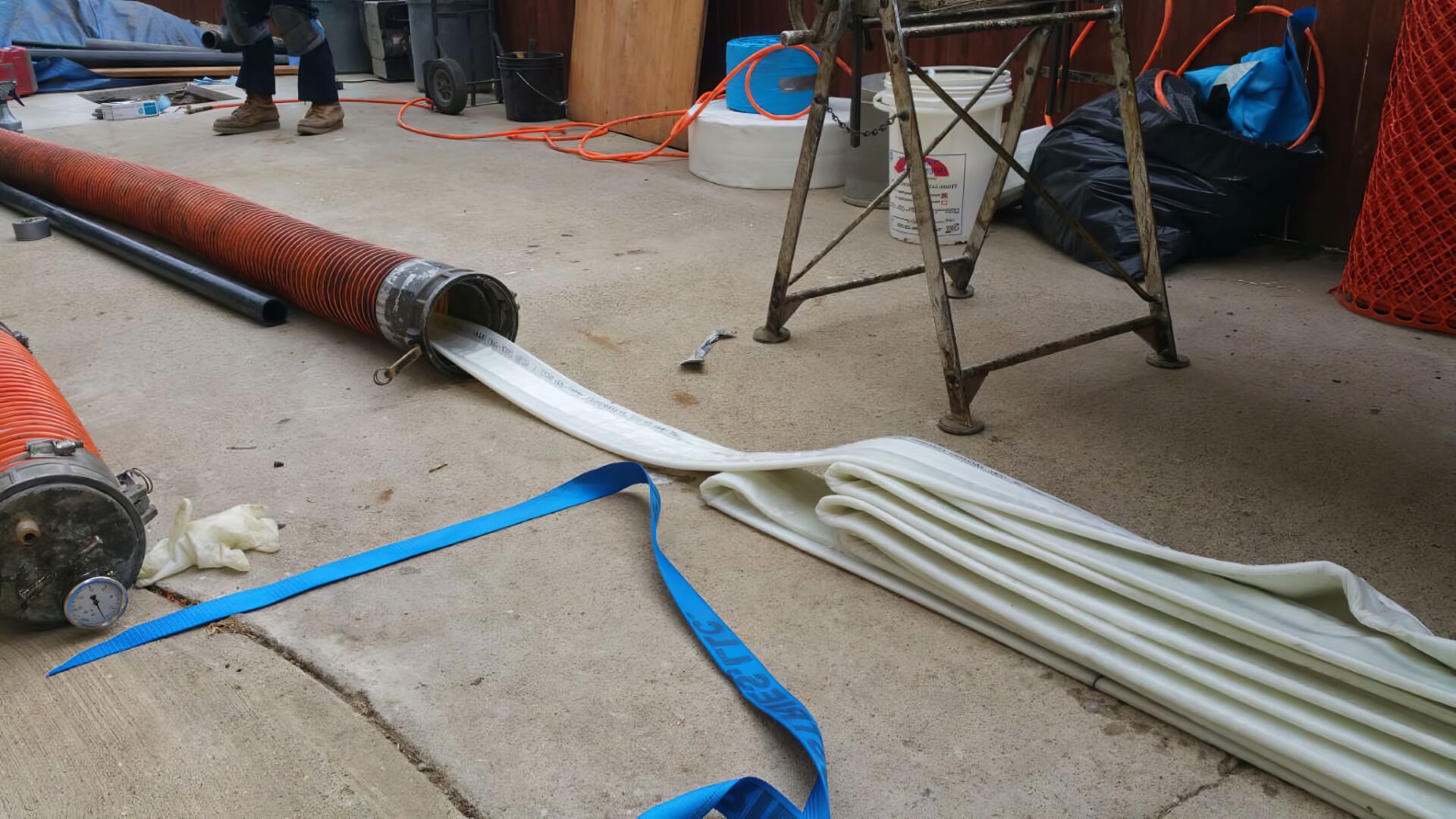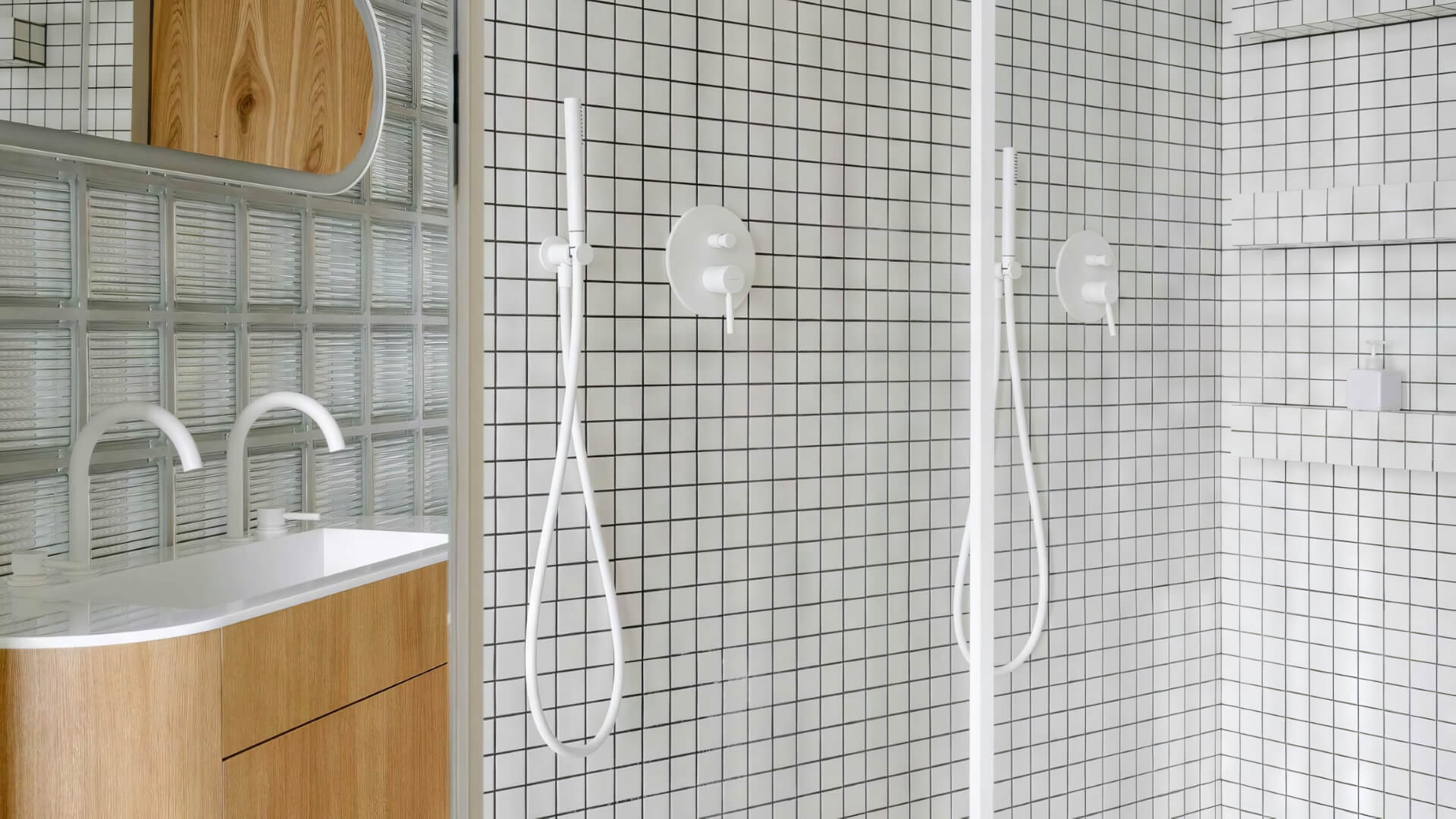Recognizing early warning signs of plumbing problems
Early detection of plumbing issues is crucial to avoid extensive damage and expensive repairs. Here are crucial maintenance tips for Petersham residents to tackle problems promptly:
- Low water pressure - Gradually decreasing water flow in sinks, showers, or toilets suggests pipe buildup, potentially leading to severe blockages. Act swiftly to prevent this.
- Gurgling sounds in pipes - These noises may signal air pockets or water backup. Try a drain plunger or consult a professional to snake the drains.
- Leaky faucets or pipes - Small drips waste water continuously, leading to significant cost over time, affecting your finances. Even a leak as small as 1/32nd of an inch can waste over 26 gallons per day.
- Running toilet - A constantly running toilet can drastically raise your water bill by increasing usage, potentially wasting up to 30,000 gallons per year. Check the flapper valve or call us to fix.
- Yellow/brown water - This discolouration could suggest rust or sediment buildup in pipes. Organise an inspection to determine and resolve the cause.
- Odd smells from drains or sinks - Foul odours signal potential blockages or sewer gas leaks. Don’t hesitate to get in touch for comprehensive plumbing services like drain cleaning.
Avoid ignoring plumbing red flags; neglect can exacerbate issues, increasing the risk of water damage or flooding. Our experienced Petersham plumbers offer regular maintenance to ensure your system remains optimal, efficiently resolving issues with informed advice. Both DIYers and those seeking professional assistance can mitigate common plumbing problems with our insightful plumbing tips every homeowner should know.
Conducting Regular Plumbing Maintenance
Carrying out regular maintenance is a leading plumbing tip to prevent many common issues before they occur. Here are some key tips, including advice to regularly check your shutoff valve, to maintain a healthy plumbing system:
- Monthly inspections of exposed pipes are crucial for spotting leaks, corrosion, or freezing that hint at deeper issues. Repair any leaks or minor issues promptly, for if left unresolved, these issues can escalate into substantial problems before they become daunting challenges.
- Flush drains with hot water regularly to dissolve debris like soap scum and hair, preventing clogs and maintaining clear pipes. Employing a drain strainer in sinks can capture excess toilet paper, bar soap bits, food waste, and other debris, avoiding clogs.
- Inspect beneath sinks quarterly to discover potential issues early and prevent significant leaks. Tighten fittings or replace worn washers as necessary.
- Deep clean your toilet tank and bowl annually. Refresh toilet seals and valves every 3-5 years.
- Check your shower drain and test shower heads for any signs of reduced water flow. Descale or replace them if required.
- Have your water heater, heat pump, and surge protectors serviced as per manufacturer guidelines.
- Inspect your water meter and pressure regulator, along with backflow prevention valves, yearly. Book repairs promptly.
- Professionally inspect your sewer line for tree roots or potential blocked drains every 1-3 years using CCTV drain cameras. Address root intrusions early.
DIY enthusiasts equipped with the right tools can handle many plumbing tasks, but recognising when to call in licensed Petersham plumbers can save money in the long run. Our skilled plumbers can conduct comprehensive inspections, provide tailored maintenance plans, and resolve complex issues with their technical expertise. Proactive plumbing maintenance can significantly reduce emergency repairs and protect your property over time.
Understanding your plumbing system’s components
Knowing the key components of your plumbing system enables faster identification of issues, which is essential for every homeowner. It also helps when communicating with plumbers. Here are some of the main components:
- Water lines - Where main water lines lie, they are the buried pipes responsible for transporting pressurised water from the main line to your home and its various fixtures.
- Drain lines - Sewer pipes removing wastewater from your home, connecting sinks and toilets to the main sewer drain.
- Vents - Vertical pipes balancing air pressure and preventing sewer gases entering the home.
- Fixtures - Fixtures - Devices that use water such as faucets, shower heads, toilets, and water heaters.
- Main water valve - This integral system can allow you to turn off the water supply to the entire house or specific areas when conducting repairs.
- Your septic system - This includes an underground tank and soil absorption system treating wastewater in unsewered areas.
Act quickly during leaks and ensure you know where your house’s shut-off valves are, particularly in emergencies. Regularly inspect visible plumbing components to ensure they’re issue-free, demonstrating the care your system deserves. Familiarity with your plumbing allows faster response to problems, potentially minimising water wastage, flooding and associated damage.
Implementing water conservation strategies
Water conservation at home benefits the environment and can prevent financial loss from plumbing malfunctions. A skilled plumber can fix even minor leaks which can save time money by eliminating waste of over 15 gallons per day. Implementing water-saving habits and upgrades like the below can significantly reduce wastage:
- Check for leaks regularly and repair dripping faucets/pipes immediately.
- Install water-efficient showerheads, tap aerators, toilet dams or dual flush systems.
- Ensure you’re running full loads in dishwashers and washing machines to make the most of your hot water usage.
- Conserve water by taking shorter showers and turning off the tap while lathering up or brushing your teeth.
- Water outdoors conservatively, like using mulch around plants.
- Collect rainwater for use in gardens and lawns.
Simple daily habits can contribute to long-term financial security by saving on water costs. Strategic upgrades, such as installing low-flow fixtures, can save time and resources, while reducing water wastage and providing savings over time. Protecting our water resources ensures supply reliability for future generations.
Knowing when to call a professional plumber
Adopt these plumbing tips to transform your maintenance routine and guarantee your home’s plumbing stays in peak condition. Minor leaks, clogged drains, or running toilets are often manageable on your own, but complex issues should prompt professional assistance.
Here are some clear signs of when call our team of licenced Petersham plumbers:
- Major clogs or a blocked drain line that even a sturdy drain snake cannot clear.
- Leaky pipes inside walls/ceilings or under concrete are a clear sign of when to call a professional.
- No hot water due to complex heating system problems like a faulty circuit board.
- Installation of new fixtures like sinks, toilets, or your hot water heater.
- Strange noises from pipes indicating serious water hammer issues.
- Reduced water flow or pressure across multiple fixtures due to a singular issue.
- Non-functioning toilets requiring replacement of internal components.
- Gas leak detections requiring specialised equipment.
DIYers may manage simple repairs, but complex plumbing problems typically require professional help.
Don’t hesitate to call our Petersham team for a prompt assessment and quote on necessary repairs. We’re available 24/7 to quickly restore functionality and prevent escalating issues leading to water damage or unhealthy conditions.
Safety tips for DIY plumbing projects
For DIY aficionados, it’s natural to want to tackle minor plumbing repairs independently. However, understanding when your plumbing project is too complex and when to seek professional help ensures safety and proper repairs.
Ensure you wear protective gear like gloves and eye protection when handling sharp tools or corrosive drain cleaners. Review all product instructions carefully and follow directions precisely. Measure fittings and pipe lengths accurately to avoid leakage from improper joins later.
Be careful with power tools and ladders, and avoid working by yourself. Avoid attempting complex repairs like installing water heaters or altering pipe layouts. Only use parts meeting Australian and New Zealand standards to ensure reliability and safety.
Avoid chemical drain cleaners with sulphuric acid or sodium hydroxide, which can harm your pipes over time. Seek assistance promptly if a project exceeds your comfort level – our professional Petersham plumbers can complete it safely.
Though minor plumbing fixes might appear simple, always assess for potential risks. Call us to address complex issues or when needing a trustworthy second opinion on proposed DIY solutions. Our experience identifies pitfalls homeowner’s miss.
Protecting your home from water damage
Water damage is one of the most common and destructive homeowner insurance claims. However, there are several preventative measures you can implement to protect your Petersham property:
Insulate water pipes
Exposed water pipes in plumbing systems are vulnerable to freezing and bursting in cold weather. Insulate pipes in unheated areas such as basements, attics, and garages to prevent freezing and bursts, a necessary step for homeowners in any climate. Apply heat tape to pipes that are especially prone to freezing to prevent incidents that could damage your plumbing.
Install leak detectors
Place smart leak detectors in areas prone to water damage like under sinks, water heaters and washing machine hookups which can also provide early warning alerts. These sensors can easily alert homeowners to leaks before major flooding occurs.
Conduct regular visual inspections
Check your home’s plumbing fixtures monthly for drips or moisture buildup and address issues immediately. Check for pooling water under appliances to ensure your home is leak-free.
Clean gutters and drainage areas
Clogged rain gutters can cause water to accumulate and penetrate into wall crevices. Regularly clearing debris from gutters and downspouts can save you from potential water damage. Also keep drainage grates around your home’s perimeter clear.
Grade soil properly
When it comes to protecting your foundation, ensure the soil surrounding your home slopes downwards at least 3cm every 1.5m. Downspouts should also drain water at least 2m from the house.
Taking steps to prevent water damage can lead to considerable savings on future repairs. Our Petersham plumbing technicians are also happy to review potential issues, assess your property’s vulnerabilities and recommend tailored protection solutions.






